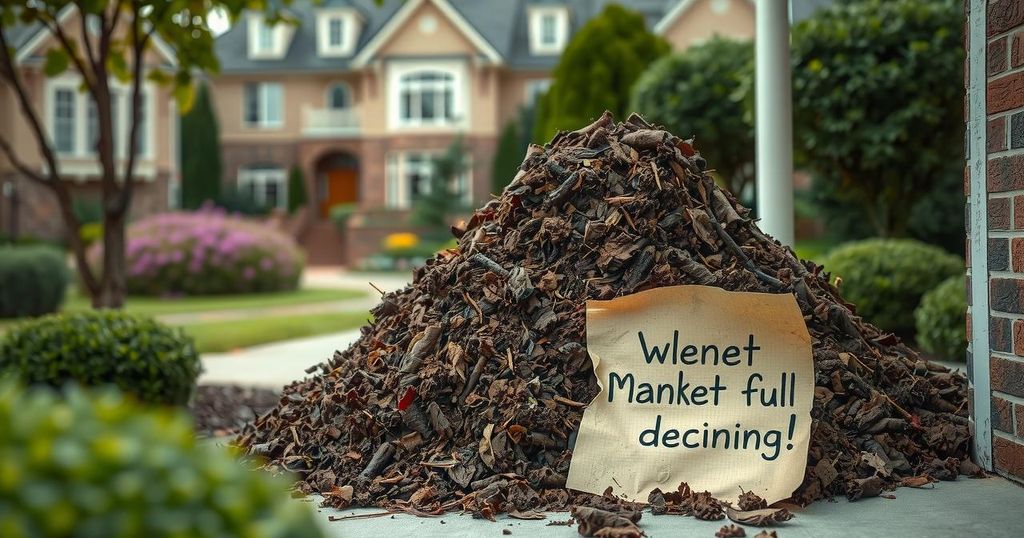Politics
ARAGUA, BAS, BASTIDAS, CARIBBEAN, CUBA, DONALD TRUMP, GUANTANAMO, GUANTANAMO BAY, HONDURAS, IMPRISONMENT, LATIN AMERICA, MADURO, MARACAIBO, MIGRATION, NORTH AMERICA, ORGANIZED CRIME, POLITICS, SOCIAL ISSUES, SOUTH AMERICA, TREN DE, TREN DE ARAGUA, TRUMP, U. S, U. S. NAVAL, UNITED STATES, US, VENEZUELA, WHITE HOUSE
Jamal Walker
0 Comments
A Venezuelan’s Journey: From Guantanamo Bay to Rebuilding Life in Maracaibo
Jhoan Bastidas, a Venezuelan deported from the U.S., shares his harrowing experience in Guantanamo Bay and reflects on his return to Maracaibo. This situation highlights the broader migration crisis affecting Venezuelans amid challenging socio-economic conditions. Bastidas aims to rebuild his life while grappling with the stigma attached to his past and aspirations for a hopeful future.
Jhoan Bastidas, a Venezuelan deported from the United States, recounts his experience after spending 16 days at Guantanamo Bay. During his detention, he endured isolation in a small room and a lack of sufficient food. Now, back in Maracaibo, he reflects on how he returned to his hometown and confronts misconceptions stemming from his tattoos, which have labeled him a criminal.
Bastidas is among approximately 350 Venezuelans recently deported from the U.S., many of whom spent time at Guantanamo Bay before being returned. These deportations are part of the Trump administration’s increased efforts to expel undocumented immigrants. Although the U.S. government has linked migrants like Bastidas to the Tren de Aragua gang, they have provided minimal evidence for these claims.
The mass departure of over 7.7 million Venezuelans since 2013 has been largely driven by a dire economic situation aggravated by President Nicolás Maduro’s leadership. Many Venezuelans aimed for the U.S. after the COVID-19 pandemic prompted a surge in migration. The Venezuelan government has historically resisted accepting deportees from the U.S.
Recently, the U.S. transferred numerous immigrants to a high-security prison in El Salvador under a wartime law to facilitate deportations. However, a federal judge temporarily halted deportations under the Alien Enemies Act, emphasizing ongoing legal struggles related to the treatment of these migrants.
Bastidas and his family left Venezuela in 2018 amidst severe difficulties, including widespread food shortages and loss of jobs. After traveling through Peru and Colombia, Bastidas sought refuge in the U.S. He was detained upon reaching Texas, where he learned he was being flown to Guantanamo Bay without prior knowledge of his destination.
His life in detention was marked by dim conditions and a lack of agency. Bastidas recalls his minimal time outdoors and the dehumanizing experience of being shackled for showers. Despite these hardships, he found solace in prayer with fellow detainees.
Upon returning to Venezuela, Bastidas is beginning to rebuild his life by working at a hot dog stand. However, he is aware of the dire state of his hometown, marked by deteriorating infrastructure and a decimated economy. While many in Maracaibo gossip about the deportees’ experiences, Bastidas remains focused on moving forward.
Embracing faith, he interprets his experiences as a divine test, believing there is a meaningful purpose for his life beyond his time in the U.S.
Jhoan Bastidas’s journey from Venezuelan deportee to resilient survivor illustrates the myriad challenges faced by migrants in the face of adversity. His story highlights the dire conditions in Venezuela that compel many to seek better opportunities elsewhere, as well as the consequences of immigration enforcement policies. Bastidas’s return represents a broader narrative of the struggles faced by millions of Venezuelans, underscoring the need for compassion and understanding in addressing the migrant crisis.
Original Source: www.clickorlando.com




Post Comment